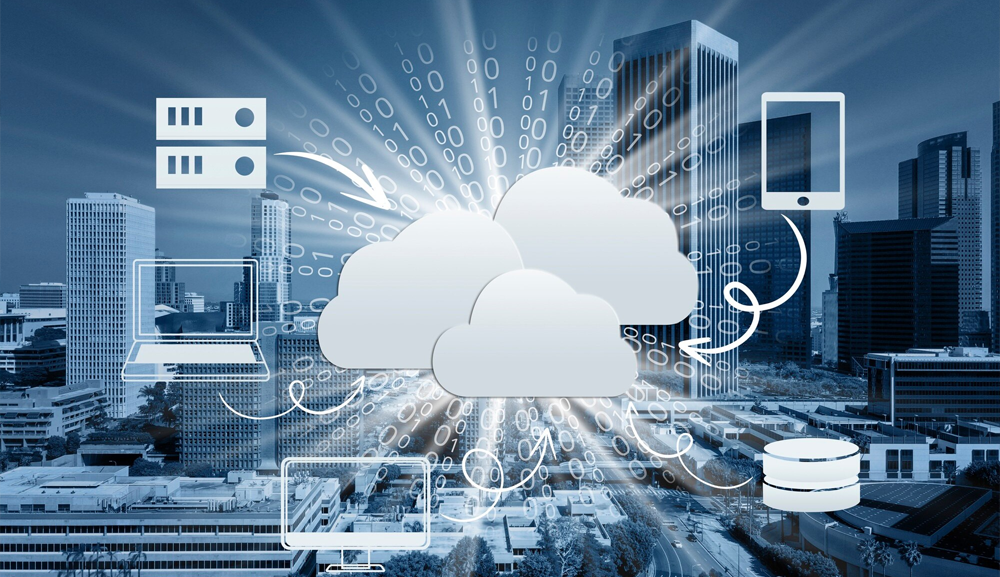Cloud ERP Systems: The Future of Business Management

Boost efficiency and cut costs with cloud ERP systems! Discover how cloud-based ERP solutions enhance security, AI integration, and business growth in a digital-first world.
In today’s fast-paced digital economy, businesses require agile, scalable, and efficient solutions to manage operations effectively. Traditional ERP systems, while once the gold standard, are rapidly being replaced by cloud ERP systems, which offer flexibility, real-time accessibility, and reduced IT maintenance. Among these modern solutions, JCloud ERP is emerging as a leader in cloud-based ERP solutions, designed to enhance productivity and scalability while ensuring robust security and cost efficiency.
As companies increasingly adopt cloud ERP for business growth, it is essential to explore the benefits of cloud ERP, its impact on operational efficiency, cost savings, security, and the role of AI in ERP software. Additionally, we will compare cloud ERP vs. traditional ERP: which is better? to help businesses make informed decisions about their ERP investments.
Understanding Cloud ERP Systems
What Are Cloud ERP Systems?
A cloud ERP system is an enterprise resource planning software hosted on remote servers and accessed via the internet, eliminating the need for on-premise infrastructure. These systems integrate essential business functions such as finance, human resources, inventory management, customer relations, and supply chain operations.
Unlike traditional ERP software that requires high maintenance and costly upgrades, cloud-based ERP solutions provide automatic updates, seamless scalability, and enhanced security, making them a preferred choice for businesses worldwide.
Cloud ERP vs. Traditional ERP: Which Is Better?
When evaluating cloud ERP vs. traditional ERP, several factors come into play:
| Feature | Cloud ERP | Traditional ERP |
|---|---|---|
| Implementation | Quick deployment via the internet | Long setup process requiring IT infrastructure |
| Cost | Subscription-based, lower upfront cost | High initial investment and maintenance costs |
| Scalability | Easily scalable with business growth | Limited scalability; requires additional resources |
| Security | Advanced cloud ERP security features | Security depends on internal IT team |
| Accessibility | Remote access from any device | Limited to on-premise use |
Clearly, cloud-based ERP solutions offer greater flexibility, lower costs, and enhanced security compared to traditional ERP systems.
The Benefits of Cloud ERP for Business Growth
Businesses across various industries are embracing cloud ERP for business growth due to its numerous advantages. Let’s explore the benefits of cloud ERP and how it impacts business operations.
1. Cost Savings with Cloud ERP
One of the biggest advantages of cloud ERP cost savings is the reduction in hardware, IT personnel, and maintenance expenses. Unlike traditional ERP systems that require significant capital investment, cloud ERP systems follow a subscription-based model, allowing businesses to pay for only what they use.
Additional cost benefits include:
- Lower IT infrastructure costs
- Reduced downtime with automatic updates
- Predictable operational expenses
By leveraging cloud ERP cost savings, companies can allocate resources more efficiently and invest in business growth strategies.
2. AI in ERP Software: Enhancing Efficiency
Artificial Intelligence (AI) is revolutionizing cloud ERP systems, enabling businesses to automate workflows, gain predictive insights, and improve decision-making. AI in ERP software enhances:
- Data Analytics: AI-driven insights optimize supply chain and financial management.
- Process Automation: AI automates repetitive tasks, increasing productivity.
- Customer Experience: AI-powered chatbots and automation improve customer engagement.
With AI capabilities integrated into cloud-based ERP solutions, businesses can achieve higher operational efficiency and data-driven decision-making.
3. Improved Security with Cloud ERP Systems
Security is a major concern for businesses adopting digital solutions. Cloud ERP security features ensure data protection through:
- Advanced Encryption: Protects sensitive business information.
- Regular Security Updates: Keeps systems safe from cyber threats.
- Access Control & Authentication: Ensures only authorized personnel access critical data.
Compared to on-premise ERP systems, cloud ERP security features provide enhanced protection against cyberattacks, data breaches, and unauthorized access.
4. Increased Business Efficiency
The impact of cloud ERP on business efficiency is evident in various aspects:
- Real-time Collaboration: Teams can access and update data anytime, anywhere.
- Faster Decision-making: Centralized data enables quick and informed decisions.
- Automated Compliance Management: Ensures adherence to industry regulations with minimal manual intervention.
These features significantly enhance productivity and streamline business processes, making cloud ERP systems a game-changer for modern enterprises.
5. Scalability and Growth Potential
For growing businesses, scalability is crucial. ERP system benefits for growing companies include:
- Flexible Scaling: Adjust resources based on business demands.
- Global Expansion Support: Multi-language and multi-currency capabilities.
- Customizable Modules: Businesses can add functionalities as needed.
With cloud ERP for business growth, organizations can scale efficiently without worrying about expensive hardware upgrades.
Cloud ERP Adoption Trends: The Future of Business Management
Rising Adoption of Cloud-Based ERP Solutions
The adoption of cloud ERP systems is accelerating, driven by factors such as remote work, increased cybersecurity concerns, and the demand for real-time business insights. Key cloud ERP adoption trends include:
- Increased AI and Machine Learning Integration
- Greater Focus on Cybersecurity
- Rise of Industry-Specific ERP Solutions
- Expansion of Mobile ERP Applications
Why Businesses Are Switching to Cloud ERP
Companies are increasingly moving away from legacy systems in favor of cloud-based ERP solutions due to:
- Flexibility and Remote Access
- Lower IT Costs and Maintenance
- Faster Implementation and Upgrades
- Improved Data Management and Reporting
These cloud ERP adoption trends highlight the shift towards more agile, cost-effective, and intelligent business management solutions.
Final Thoughts: The Future of JCloud ERP
As businesses seek innovative ways to enhance efficiency and growth, JCloud ERP stands out as a leading cloud-based ERP solution. With its AI in ERP software, advanced security features, and cost-saving benefits, it is set to redefine the future of business management.
By embracing cloud ERP for business growth, companies can streamline operations, improve decision-making, and stay ahead in a competitive marketplace. As cloud ERP adoption trends continue to evolve, businesses that invest in scalable and secure cloud ERP systems like JCloud ERP will enjoy long-term success.
Key Takeaways:
✅ Cloud ERP systems offer flexibility, scalability, and cost savings.
✅ AI in ERP software enhances automation and decision-making.
✅ Cloud ERP security features provide superior data protection.
✅ Impact of cloud ERP on business efficiency is significant.
✅ Cloud ERP vs. traditional ERP: which is better? Cloud ERP offers more advantages.
With JCloud ERP leading the way, the future of business management is smarter, more efficient, and cloud-driven. 🚀
More Articles
 26 Nov 2025
26 Nov 2025
Enterprise Containerization Trends with Docker & Kubernetes
Powerful insights into containerization trends, Docker and Kubernetes shifts, enterprise scaling strategies and cloud-native solutions shaping 2025.
 25 Nov 2025
25 Nov 2025
Coding Bootcamps for iGaming Developers | Learn Game Dev
Coding bootcamps for iGaming developers offer a fast path into game creation, guiding beginners and professionals toward real casino-grade coding skills.
 24 Nov 2025
24 Nov 2025
Responsible Gaming Tools | Player Protection Solutions
Protect players and enhance integrity with next-gen Responsible Gaming Tools. Learn how to implement responsible gambling solutions that promote safety, fairness, and control.
 24 Nov 2025
24 Nov 2025
Increase User Engagement with Cross-Platform Strategies
Learn cross-platform engagement strategies to strengthen consistency and boost user interaction across all digital channels.